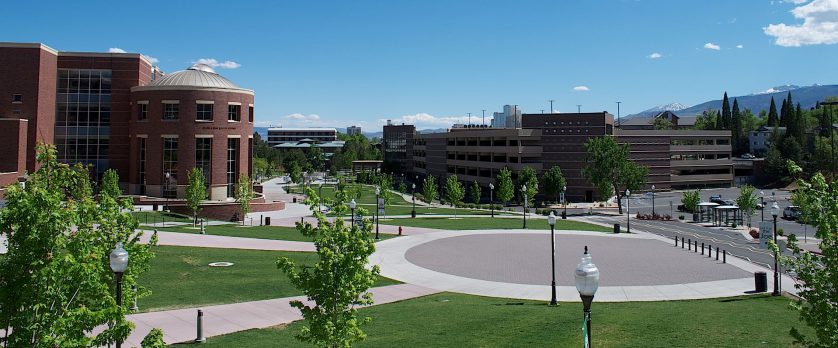Why Choose to Study Psychology in Nevada?
There is a high demand for psychologists in Nevada, and the psychology field is projected to grow considerably in the state over the next decade. The state ranks lower than the majority of states in the country with lower access to mental health care and higher prevalence of mental illness than most according to Mental Health America. This demonstrates the high need for qualified psychologists and demonstrates that there is no shortage of opportunities for those entering the field.
Nevada also offers plenty of benefits to those who live in the state. Nevada boasts a low cost of living and no state income tax, providing strong incentives to consider moving to the state. Nevada also offers a plethora of entertainment, from world-renowned shows in the city to an abundance of outdoor recreation activities outside of it.
With a high projected growth of psychologist jobs in Nevada and the many benefits of living in the state, Nevada provides plenty of opportunities for aspiring psychologists. This guide will provide you with key information on pursuing a career in psychology in Nevada, from education options to licensure requirements and job opportunities.
Sponsored School(s)
Psychology Schools in Nevada
Nevada features several schools with psychology programs, including two that make the list of best psychology schools in the country. According to US News and World Report, the University of Nevada-Reno and the University of Nevada-Las Vegas both make the list of the top 200 best psychology schools in the country, ranked 131 and 190 respectively.
There are four schools in Nevada that offer at least a bachelor’s degree in psychology, including Nevada State College and Sierra Nevada College. The University of Nevada-Reno, University of Nevada-Las Vegas and Nevada State College all offer online as well as on-campus options, providing a variety of options for prospective psychology students in the state.
Other schools within the state offer a strong diversity of bachelor’s specialization areas and graduate degrees. Many choose to complete bachelor’s and master’s work at the cheaper schools before opting for UNLV or Nevada-Reno to finish their degree path.
Job Prospects in Nevada for Psychology Professionals
There is a variety of job opportunities for psychologists in Nevada, including clinical, counseling and school psychologists and post-secondary psychology teachers. These occupations are all projected to grow considerably according to the Nevada Department of Employment, Training and Rehabilitation. Between 2020 and 2022 alone, clinical, counseling and school psychologists will see a projected 8.19% growth in employment.
Post-secondary psychology teachers are projected to see a 12.04% in this period, and all other psychologist opportunities are projected to grow 3.50%. Between 2018 and 2028, the growth proves to be steady as clinical, counseling and school psychologists will see a projected 20.29% growth. Altogether, Nevada has a wealth of possibilities for aspiring psychologists.
In Nevada, the annual mean wage of clinical, counseling and school psychologists was $90,410 according to May 2020 numbers from the Bureau of Labor Statistics. This was slightly above the national mean annual wage of $89,290 and ranked Nevada as the 12th highest mean annual wage in the country. Psychologists in all other areas made $93,610 in the state, compared to the national mean annual wage of $100,130. With a low cost of living in the state, the annual mean wage holds more weight than other states.
Licensing Requirements for Psychologists in Nevada
Licensure for psychologists in Nevada is provided through the State of Nevada Board of Psychological Examiners. In order to obtain a psychology license in Nevada, you must have a doctorate degree that includes a 2,000-hour pre-internship in the field. Candidates are also required to complete 1,750 hours over two years of supervised postdoctoral experience.
After completing all of the requirements, you must take the national Examination for Professional Practice in Psychology (EPPP) and the 55-question multiple-choice state psychological exam. The EPPP addresses eight content areas, covering bases of behavior, research methods and more, while the state exam focuses on areas of jurisprudence and ethics. The pathway to a license takes about ten years on average.
Aspiring school psychologists with a master’s degree can obtain a license from the Nevada Department of Education. Counselors and therapists also have different certification processes for those pursuing this track.
To renew a psychology license in Nevada, you must provide proof of 30 hours of continuing education credits. These hours should include 6 hours of education on scientific and professional ethics and standards and common areas of professional misconduct. The ethics course must be APA or Board approved. Psychologists must also have two hours of training on evidence-based suicide prevention and awareness.
Where in Nevada do You Want to Study?
Nevada Psychology Resources
Nevada Psychological Association (NPA) – The NPA is an association that represents licensed psychologists and those who carry out psychological services in the state. The association performs state and federal advocacy at a legislative level, provides training and early career support for psychologists, psychological referral services and public education campaigns.
Nevada Association of School Psychologists (NVASP) – NVASP works to advance opportunities for school psychologists in Nevada. NVASP provides continuous learning opportunities for its members while also advocating for legislation, promoting school safety and developing community between school psychologists.
Nevada Counseling Association (NCA) – The Nevada Counseling Association works to promote the development of professional mental health providers through continuing education opportunities and legislative advocacy. Members are able to attend conferences, access professional development opportunities and gain a network of contacts in the field.
Nevada Psychology Internship Consortium (NV-PIC) – NV-PIC was developed in part to increase the mental health workforce and increase access to mental health services. The consortium offers various internship positions and works with training sites at two state agencies to provide a holistic educational program for psychology interns.










 Degrees Offered
Degrees Offered


